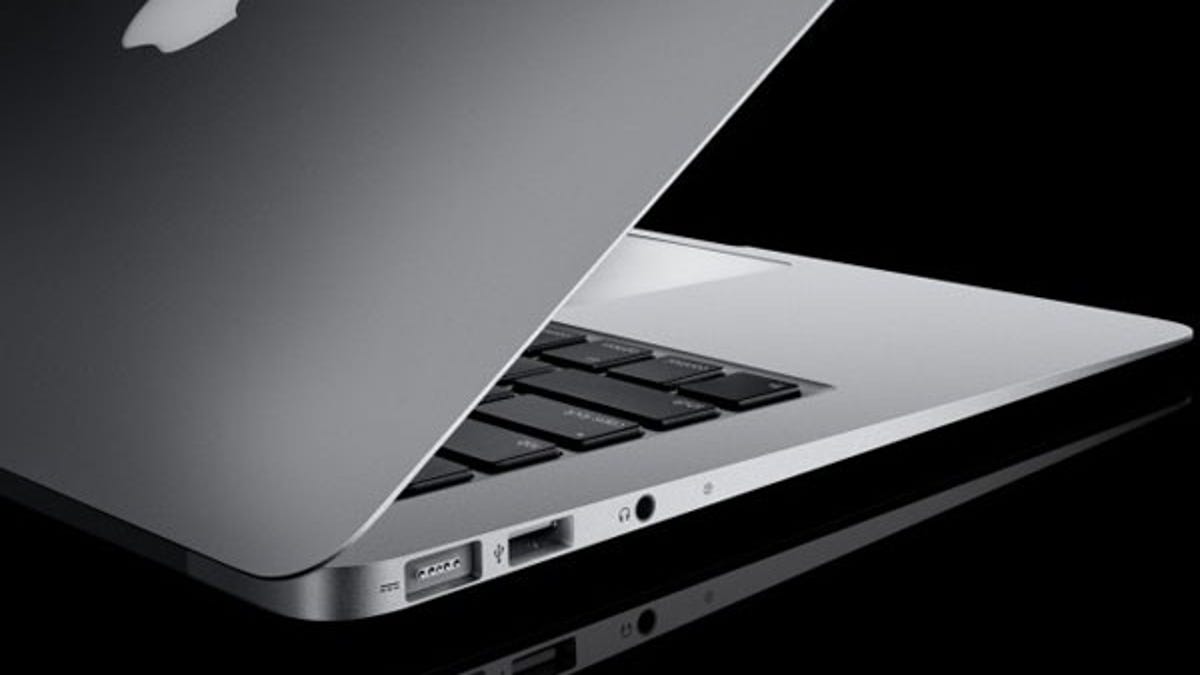Halo still in effect: Apple sees iPads as gateway to Macs
Where Apple once saw the iPod as a gateway for Mac computers, it now says iPads are doing the same thing.

Apple's MacBook Air.
When the iPod first came out, Apple hoped it would help drive sales of the Mac. The reason was simple: at first, you needed a Mac to use the svelte little MP3 player. The phenomenon was dubbed the halo effect because customers would be expected to gravitate to Apple's other products.
Of course, what ended up happening instead was that Apple soon made iTunes and its music store available for Windows users, switched from Firewire to the more ubiquitous USB, and went on to sell millions of iPods, dominating both the digital music and MP3 player markets in the process.
Now some 11 and a half years later, that original halo idea still lives on, though with a product you might not expect.
That would be the iPod's descendant, the iPad, the very device that initially brought worries that Apple was shooting its computer business in the foot by selling something that was about half the price of its cheapest notebook and could do many computer-like tasks. The company now says it sees the iPad more as a device that gets people buying Macs than one that takes those sales away.
Related stories
- Cook the cannibal: Apple chief's secret product recipe
- More to Mac sales than a halo
- Apple profit slips 18%, but iPhone, iPad sales stay strong
"We sold almost 20 million iPads, and it's certainly true that some of those iPads cannibalize some Macs," Apple CEO Tim Cook told analysts during the company's second-quarter earnings call earlier today. "We believe that, if anything, the huge growth in tablets may benefit the Mac."
How exactly will that happen? Cook said that the company sees the iPad "pushing" consumers to think about Macs in a new way, and that the company was going to "continue making the best personal computers," to capitalize on that.
Cook's comments came in response to a question about the health of Apple's Mac sales, which were down 2 percent from the same quarter a year ago. It's a smudge in an earnings report that surprised Wall Street with stronger than expected sales of iPhones and iPads.
Apple still managed to fare better than many PC makers, which combined had first calendar quarter shipments (not to be confused with sales) that were down 14 percent year over year, according to research by IDC. Dueling reports earlier this month suggested it could have been much worse, or much better for Apple, with Mac shipments up or down about 7.5 percent.
One company, two platforms
As for Cook's take that iPads might push people to Macs, it shouldn't come as a surprise when talking software. Apple has spent a little more than two years making OS X for Macs more like iOS, the operating system that powers the iPhone, iPod and iPad.
In reality, that's involved adding some of the same user interface features and built-in utilities like an integrated software store, then syncing everything through its iCloud service. Apple's also sped toward more inexpensive, annual OS X releases, down from the two to three year cycles of the past. The cumulative effect is something that makes the two platforms feel similar, and related even.
Apple's iPad Mini, the company's latest tablet.
Even with those changes, Apple's platforms are not at the point where users can download a piece of software on one and use it on the other since iOS relies on touch and the OS X relies on a mouse and keyboard. Apple has, instead, pushed developers to make separate, but similar apps suited for each. That could change one day, but for now Apple seems most focused on making the jump between platforms less jarring. Most recently that was adjusting the way people use the touchpads on its notebooks to move things on screen the same way they'd move if you were on an iPhone or iPad.
Whether these things add up to people taking the plunge on buying more hardware is not an exact science, though the company believes it's working. Cook last year noted that the halo effect was still very much alive with the iPhone, and that it could also jump between iOS devices. "What is clearly happening now is that the iPhone is creating a halo for the Macintosh," he told investors during the 2012 Goldman Sachs Technology Conference. "The iPhone has also created a halo for iPad."
The idea is harder to swallow for the iPad to the Mac though, where Apple has positioned the tablet a replacement for computers in schools and businesses. For years, Cook (and Steve Jobs before him) assuaged concerns about this impacting sales of its other devices by saying it could have been another company eating its lunch. "My belief is that if we don't cannibalize, someone else will," Cook told investors on the topic back in February.
With a rise in Apple's product sales it's been hard to argue that.

